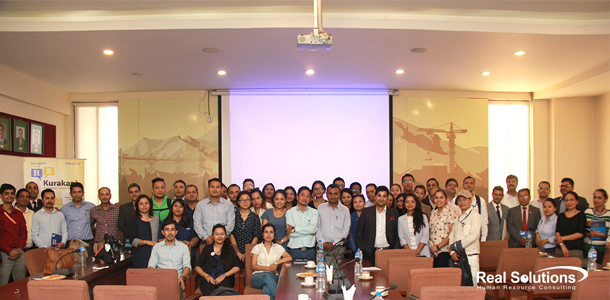In the rapidly evolving digital landscape, Nepal is experiencing a significant surge in technological advancements and digital adoption rising at an unprecedented rate.
The digital revolution has opened up several work opportunities for graduates in the field of Information Technology (IT).
In this blog, we will explore the various career paths available for IT graduates in Nepal and shed light on the prospects and potential they offer in Nepal's job market.
Top career options after BIT/B.Sc.IT
After completing a Bachelor of Information Technology (BIT) or a Bachelor of Science in Information Technology (B.Sc.IT), graduates have a wide range of high-paying career options available.
Information Technology (IT) is vast and constantly evolving, offering numerous career opportunities.
Here are some top career options to explore:
Software Developer/Engineer:
As technology becomes more advanced and integrated into various industries, companies are actively seeking software development experts.
For graduates, the high demand translates into a variety of work choices and improved job stability.
Software development/engineering offer job flexibility that no other career provides.
The work of a developer can be done remotely or with flexible hours, allowing better work-life balance.
With a strong background in programming and software development, you can work as a software developer or engineer. You'll be responsible for designing, coding, testing, and maintaining software applications.
Database Administrator:
A career in Database Administration is best suited for people with a strong interest in working with data management systems and who enjoy problem-solving in a technical environment.
Database administrators manage and maintain an organization's databases. They handle tasks such as database design, implementation, security, backup and recovery, and performance optimization.
While few organizations may prefer experienced professionals for this role, there are also opportunities available for freshers.
There are companies that offer entry-level positions and internship opportunities designed to train and develop fresh talents in database administration.
These positions may provide the necessary guidance and mentorship needed to grow as an expert database administrator.
Network Administrator/Engineer:
Network administrators are responsible for managing an organization's computer networks. They configure and maintain network infrastructure, troubleshoot network issues, and ensure network security.
Network administrators/engineers should have a solid understanding of computer networks so individuals who have a keen interest in system administration and computer networks would be perfect for this job.
The role of Network Administrator/Engineer specific requirements for a Network Administrator/Engineer position may vary depending on the organization and its technology stack.
However, a combination of technical expertise, problem-solving skills, and effective communication is generally desired for this role.
Data Scientist:
With a strong background in data analysis and statistics, anyone can pursue a career as a data scientist. Data scientists extract insights from large datasets, to gain insight to help organizations make data-driven decisions. In short, data science is all about decoding the power of numbers.
While a background in information technology (IT) is not necessarily a requirement to become a data scientist, it can be beneficial.
Data science involves working with huge datasets, applying statistical techniques, and using programming languages such as Python or R for data manipulation and analysis.
An IT background can provide a solid foundation in programming, databases, and data management, making it easier to acquire and apply these technical skills.
IT Trainer/Educator:
If you enjoy teaching and have good communication skills, you can consider a career in IT training or education.
You can work as an instructor or trainer to impart IT skills to aspiring professionals.
IT Trainer/Educator can manage the training needs, and research the latest software and updates to conduct new training sessions.
They may work for one company as an in-house trainer, teaching everyone in the company how to use software, or they can work on a contract basis for multiple companies and train employees as needed.
To explore jobs at merojob for IT graduates, click here.


















